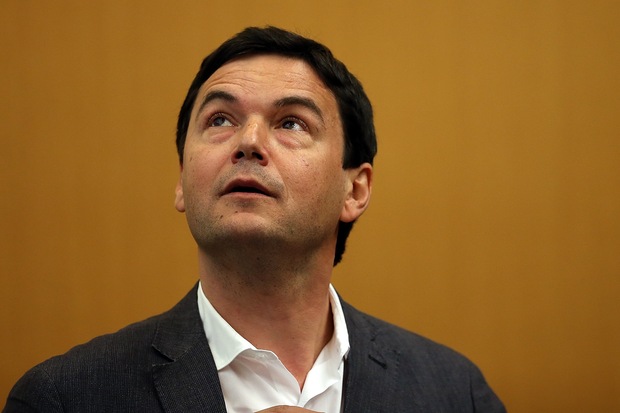Interview with Thomas Piketty: “The myth of national sovereignty helps big corporations screw us over”, The European Magazine, 12 Δεκεμβρίου.
French economist Thomas Piketty has put inequality back on the map and is being hailed as the Karl Marx of the 21st century. He talked to Max Tholl and Florian Guckelsberger about a globalization gone wrong, a Eurozone parliament and our obsession with economic growth.
The European: Mr. Piketty, not just Paul Krugman and Joseph Stiglitz have praised your book, but also Marine Le Pen, who applauded it for showing what globalization inevitably leads to: inequality.
Piketty: Did she say she read it?
The European: Yes.
Piketty: Nobody told me that she likes the book! Did she really say that she read my book?
The European: You seem surprised.
Piketty: I am! I would be surprised if she had actually read it but if that is the case, I can only wonder what she makes of it.
The European: She fundamentally disagrees with the solutions you propose but praises the evidence of the book as an attack against the globalized world.
Piketty: The book is by no means an attack against the globalized world; it’s an attempt to reconcile globalization and global economic competition with global justice. I firmly believe that globalization is a positive-sum game that serves all our interests. But we must find ways and develop institutions to ensure that everybody benefits from it. If a rising percentage of the public thinks that a disproportionate share of the benefits of globalization goes to the financial sector or large multinational companies, then there is a great danger that people like Marine Le Pen will be able to successfully drive the anti-globalization agenda and revitalize nationalism.
The European: Does it bother you that she uses your book to back up her arguments?
Piketty: I am advocating all the things she opposes in Europe: a closer political and fiscal union, more cooperation, etc. So I think that people will realize that we’re not on the same side. But let me make it clear that the book is actually more about the history of inequality rather than the way ahead. I am much better at analyzing the past than predicting the future. I actually want people to disagree with my conclusions and write their own. I wanted to provide the data and bring the debate about inequality back on the political and economic center stage.




